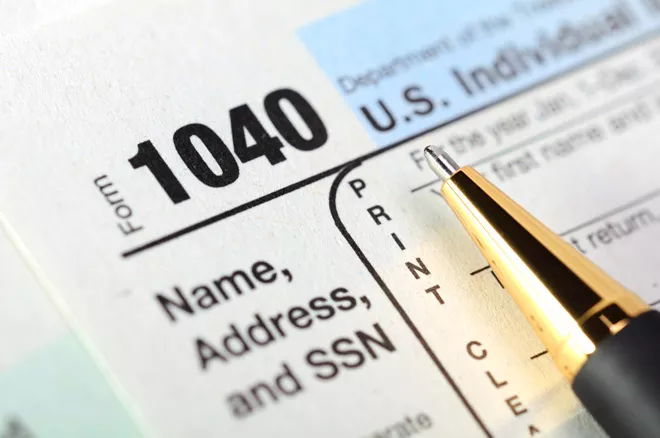There's no great mystery why Idaho has trouble funding its schools and fixing its roads: The state has low taxes and low wages. Relative to its income level, Idaho has the 41st lowest tax rate in the nation, according to the Idaho State Tax Commission. Only Mississippi has a lower per-capita income.
But don't look so smug, Washington progressives: Washington may take in more tax revenue to fund more programs than Idaho, but its tax system hits the poor far harder.
The Institute on Taxation and Economic Policy concluded that Washington had the most unfair tax system in the nation, with the the bottom 20 percent of non-elderly taxpayers — families making less than $21,000 a year — paying more than 16 percent of their income in state and local taxes. The super-rich top 1 percent? They pay only 2.4 percent. Idaho's tax system, by contrast, ranks among the fairest.
Washington's and Idaho's state governments are funded by a cocktail of small taxes — gas taxes, cigarette taxes, alcohol taxes, utility taxes — and big ones. Here's how Washington and Idaho's major taxes stack up:
SALES TAX
WA rate: 6.5 percent (not including local taxes); represents 47.2 percent of the WA general fund
ID rate: 6 percent; represents 40 percent of the ID general fund
There are two big problems with a sales tax: First, it hits poor people the hardest. "It is upside down, deeply regressive," says Andy Nicholas of the liberal Washington State Budget & Policy Center. "It taxes soap and shampoo and necessities and clothing."
If you're rich, you buy plenty of stuff, but usually have a lot of money left to invest or put into savings that sales taxes won't hit. Not so if you're poor.
In Washington's case, the sales tax has an exemption for food and prescription drugs — that makes things a little easier for poor people. Idaho's sales tax doesn't have an exemption for groceries, but does give a yearly grocery tax credit.
Second, people are buying a lot less physical, tangible stuff and a lot of more services, like health care and college tuition, these days. As a result, revenue from sales taxes has been declining.
"It's a very, very outdated tax. It does not operate well in a 21st century economy," Nicholas says. Paul Guppy, research director of the conservative Washington Policy Center, suggests reforming the sales tax system by closing certain loopholes, taxing more services — Washington already taxes construction labor as "sales" — and then cutting overall rates.
"When you reduce the tax burden, most of the income goes to low-income people," says Guppy.
INCOME TAX
ID personal income tax rate: 1.7 percent to 7.4 percent; represents 47 percent of the ID general fund
ID corporate income tax rate: 7.4 percent on net income; respresents 7 percent of the ID general fund
A graduated income tax, by contrast, is the easiest way to ensure that the bulk of taxes falls upon those with the money to afford them. That's what Idaho has. Idaho's income tax is not quite as tough on the rich as federal income taxes, however, and Idaho Gov. Butch Otter has suggested slashing income taxes for the top bracket even more.
Washington, meanwhile, has neither a personal nor a corporate income tax — a big selling point for business owners and the wealthy. Any attempt to introduce one would face massive opposition. A 2010 initiative attempted to place one on the very rich and was blown away at the ballot box — with nearly two-thirds of voters opposing it.
BUSINESS AND OCCUPATION TAX
WA rate: 0.13 to 1.4 percent on gross receipts; represents 20 percent of the WA general fund
Unlike Idaho's corporate income tax, which taxes businesses on their profits, Washington's B&O tax hits businesses on their gross revenues. It makes the tax harder to dodge but also means that even if your business hemorrhaged money, you could owe the state a big tax bill on top of your losses.
The hatred of the B&O tax is bipartisan. "It's hopelessly complicated," Guppy says of the tax. "It's hard to comply with."
The B&O tax also hits businesses with razor-thin margins, like grocery stores, far harder than wealthier businesses like law firms. Then there's the issue of all the varying rates and tax breaks handed out to big companies like Boeing. "The largest industries have written themselves out of the tax system," Nicholas says.
PROPERTY TAX
WA rate: $214.51 on a $100,000 house (not including local taxes); represents 12 percent of the WA general fund
The big advantage of property taxes is their stability: The price of a home generally isn't as likely to be affected by economic ups and downs as other parts of the economy. The downside, Nicholas argues, is that property taxes are almost always passed on to low-income tenants as higher rents.
In Idaho, however, property taxes are purely local — a driver of inequality in the state. Before 2007, Idaho would spread local property tax revenue throughout the state, giving the poorest communities an extra boost. That's no longer the case. These days, the poorer the Idaho town, the more it struggles to raise money to pay for city, county, and school services. ♦






















